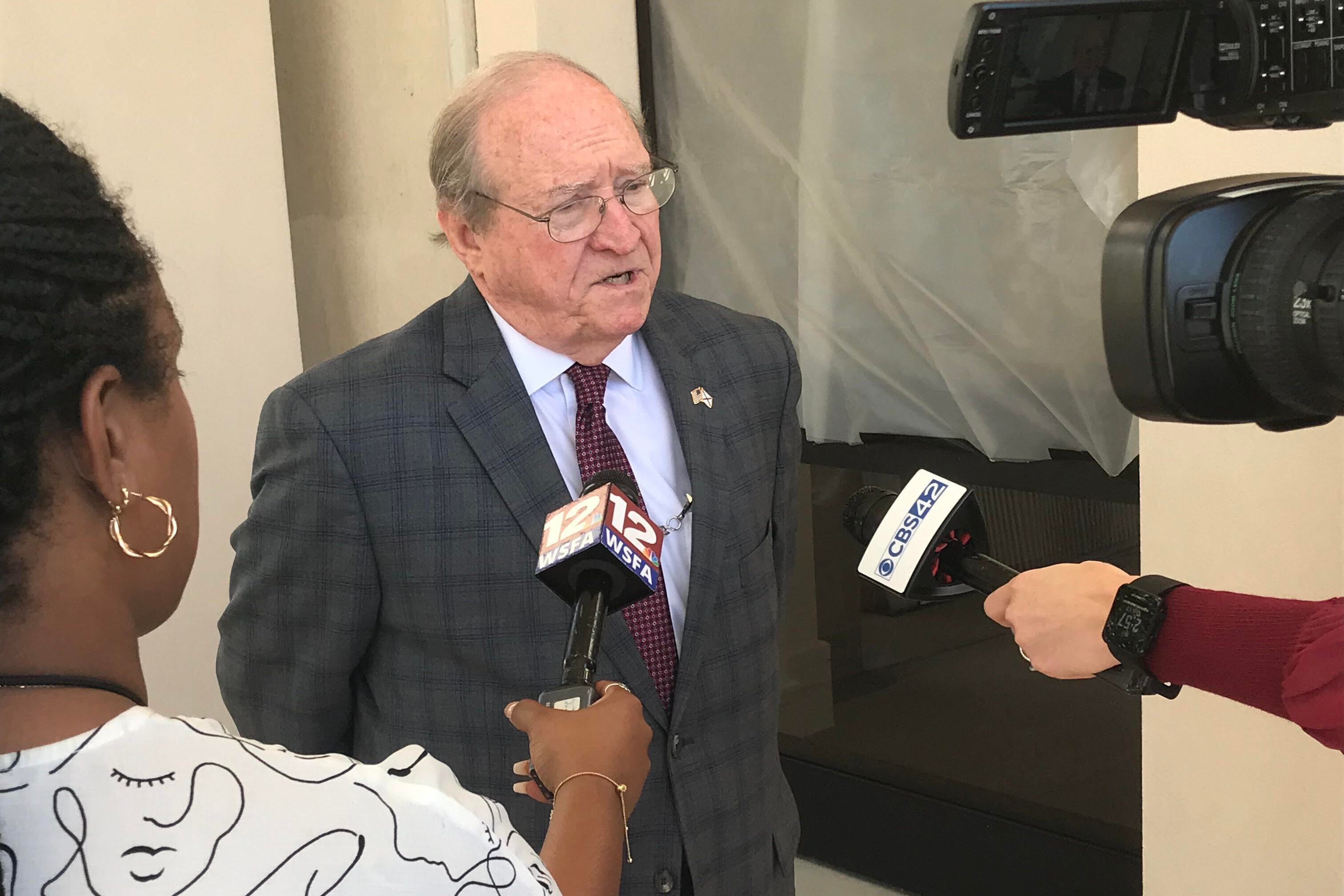MONTGOMERY — Montgomery County Circuit Judge James Anderson placed a temporary restraining order Thursday on any new Alabama Medical Cannabis Commission (AMCC) proceedings until August 28 over concerns the commission might have violated the state's Open Meetings Act during its meeting last week.
The AMCC awarded 24 licenses last week. Attorneys for companies that didn't receive a license argued in court the commission's use of an executive session to nominate some companies is a violation of the Open Meetings Act. Attorneys for AMCC and companies that did receive a license argue the executive session was allowed under state law because the commission was discussing the general reputation and character of applicants.
Executive sessions are portions of government meetings held separately and privately in the middle of a public meeting.
"The court's concerned about how long this process has taken. The legislature has passed this, and this is something that needs to be finalized. That's going to be my concern is to move this along. I think for the good of the citizens we need to get this moved on. I can't tell you how to run things. I just get stuck with what the allegations are and what the answers are," Anderson said at the hearing.
William Webster, an attorney for AMCC, said during the hearing that if the commission ended up having to re-award licenses again for a third time, they would discuss everything publicly.
"If this has to go back one more time, we're done protecting anyone's reputation or character. We don't have to go into executive session and we won't. We'll put forth everyone's dirty laundry and everyone will hear about it. It's just what's going to happen," Webster said at the hearing.
William Somerville, an attorney for one of the companies unsuccessful in getting a license, Alabama Always, said after the hearing, "Of course, we hope to get a license."
"We think that if it is a fair process we've said all along we have a great organization, great team, great facility. We think in a fair and open process we have as good a chance as anybody to get a license. No, we aren't guaranteed one but we think in a fair process we've got a really fair shot at it," Somerville said.
The temporary restraining order will put a pause on deadlines for actions by unsuccessful and successful applicants and the AMCC, such as investigative hearings, license fees and site visits.
However, the order doesn't change which companies were awarded licenses last week. Another hearing in Montgomery County Circuit Court is scheduled for August 28. The order will delay planned site visits by AMCC this month to locations of companies awarded licenses. The next meeting of the AMCC is scheduled for August 31.
The annual cannabis license fees range from $30,000 to $50,000, depending on the type.
AMCC Director John McMillan said the order would delay the commission from officially issuing the licenses to the selected companies.
"We'll most likely have to schedule another meeting. We're going to have to take care of the site visits," McMillan said after the hearing on Thursday.
Jim Barton, a spokesman for a group of companies recently awarded licenses called the Alabama Medical Cannabis Industry Coalition (AMCIC), told 1819 News on Thursday morning, "AMCIC does not believe the Alabama open meetings law was violated."
"Each application included proprietary information, which is considered confidential trade secrets under Alabama law," Barton said. "Nearly all applicants, including the applicant who filed this lawsuit, legally redacted their applications to avoid divulging their legally protected, confidential proprietary information. The AMCC wisely avoided disclosing each applicant's proprietary information, including the confidential, proprietary information of the applicant that has filed this lawsuit. Indeed, the AMCC and its members were open about the ultimate vote, with each member going on record with his or her vote for and against applicants. Moreover, the AMCC has provided detailed information about the applicants and their scores to the public through its website in what anyone would consider an attempt at transparency."
"More puzzling to the AMCIC is why an applicant would spend its time and resources filing lawsuits with no merit, rather than filing for an investigative hearing with the AMCC to seek a reconsideration of its denial as provided by Alabama law and regulations," he added. "This lawsuit seems much less about an open meetings challenge but rather about frustration over not being awarded a license (twice). This next round of lawsuits are the same as the first round - disgruntled applicants who now want a third bite at the apple. After a second round of reviews by the AMCC, it's time for the State of Alabama to move its medical cannabis industry forward by focusing on the Alabama patients this industry is focused on serving."
To connect with the author of this story or to comment, email caleb.taylor@1819News.com.
Don't miss out! Subscribe to our newsletter and get our top stories every weekday morning.










